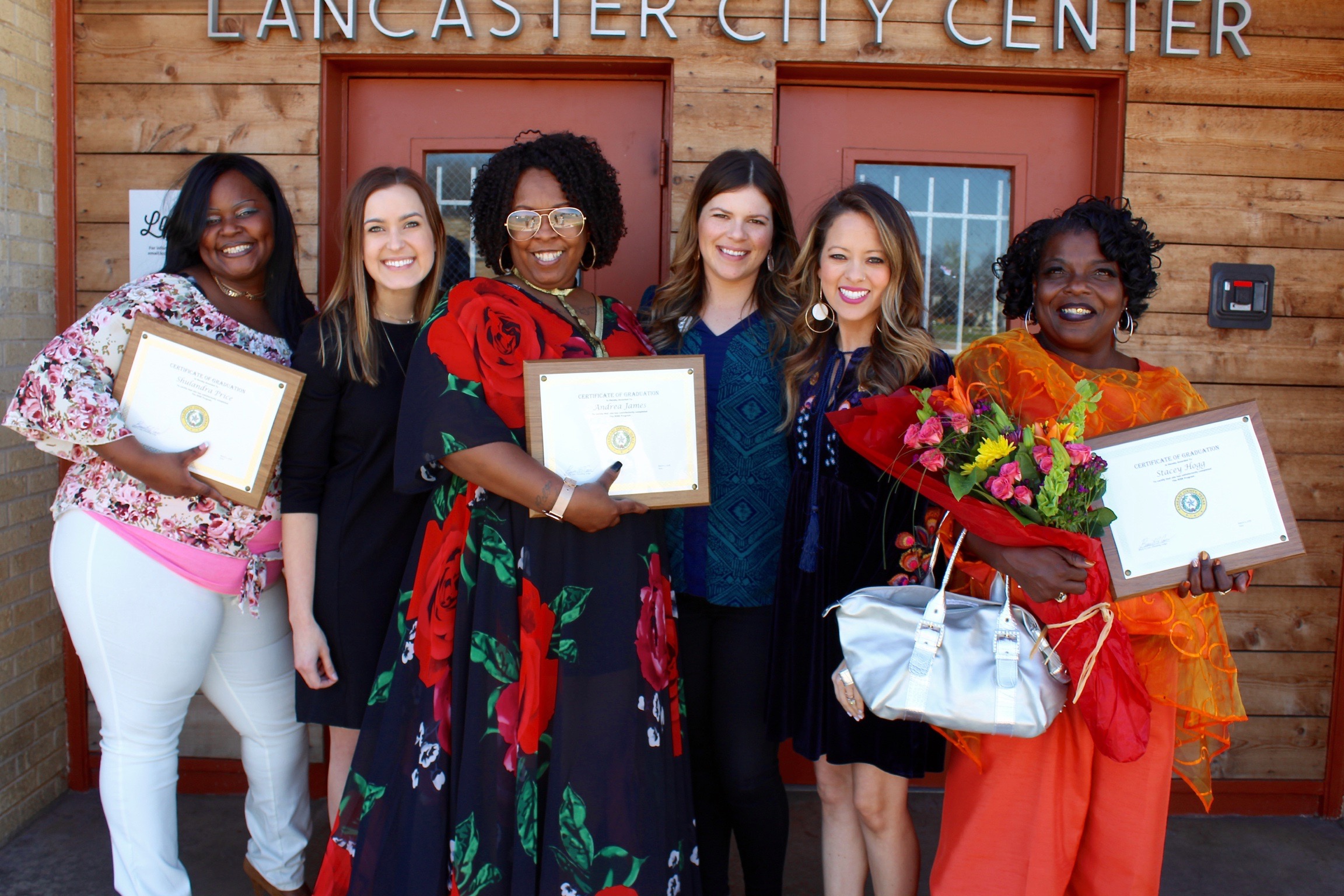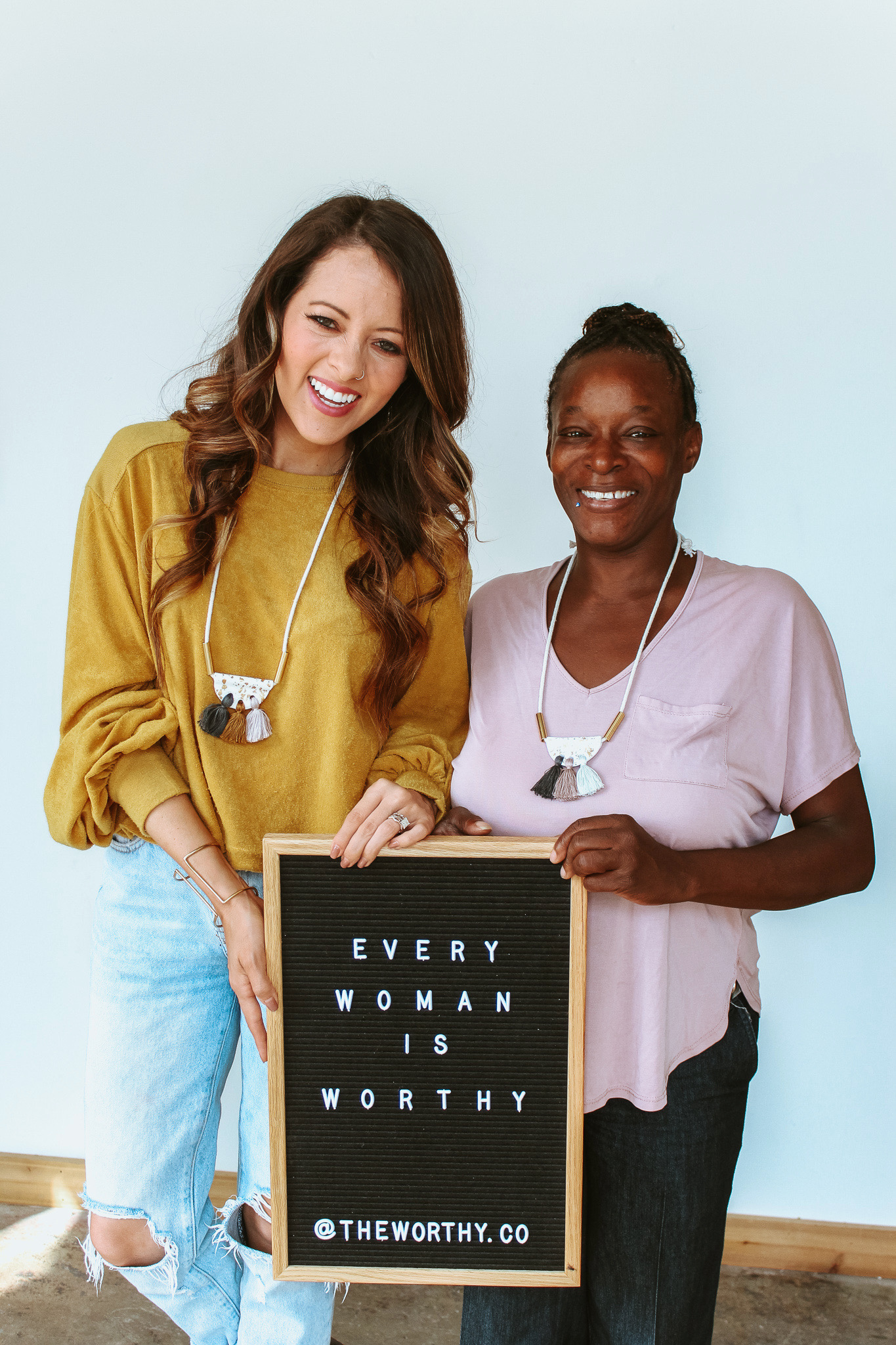January is designated as National Human Trafficking Prevention Month, so this week we are bringing you a powerful interview with Melissa Ice, Founder and Executive Director of The Net, a nonprofit addressing poverty by creating dignity-restoring relationships. Melissa and her team also recently launched a new social enterprise, The Worthy Co., which employs women who are survivors of sex trafficking.

Tell us about where you grew up and how giving back was a part of your family dynamic.
I grew up in Dallas with my family, but I don’t know that looking outward towards others was something that I had really given much thought to. I remember growing up hearing missionaries share stories of their work overseas in church settings but it wasn’t something I ever felt personally called to. However, I remember reading a book called Prisoners of Hope at the age of 19 about two girls, Baylor University students at the time, who had moved to Afghanistan to work with the poorest and most oppressed people in the world and were eventually arrested by the Taliban. This book was a memoir of their risk and courage and greatly impacted my worldview and even the trajectory of my own life. Shortly after that I found myself on a summer long trip to Ghana in West Africa where I discovered the joy to be had in caring for people in need, and the beauty in seeing people’s humanness, especially those not like me.
When did you first encounter the world of social justice and human trafficking?
Throughout my twenties I encountered social justice in ways both big and small. One was simply having friends from other countries, international students and refugees who lived in Dallas. We had dinner and coffee, and I heard their stories of what life was like for them. For example, one of my close girlfriends grew up in a heavily occupied area of the West Bank. Their lives were in such stark contrast to mine and the privilege I had experienced; I just tried to take a posture of learner so I could understand. Working with organizations in places like Kathmandu, Nepal and Rabat, Morocco were eye-opening in my understanding of the world and poverty. I discovered the world of human trafficking by simply doing street outreach in my city of Fort Worth. Once you befriend people living on the streets, and start listening to their stories you inevitably stumble upon other types of vulnerability and ways people are marginalized. For example, a lot of the women we met who were homeless were also being sexually exploited and victims of sex trafficking. It was surprising because all I had seen was media portraying the commercial sex industry with happy, empowered women, not the reality of trauma and unspeakable rape and abuse. Poverty can be an easy on-ramp to human trafficking for the most vulnerable people in society.
Would you share your story of how you started The Net and how it has grown?
The Net unofficially started in 2010 with a group of TCU students and myself who were reaching out to refugee youth in our city, and organically began to have a weekly breakfast for the homeless called “Bingo & Bagels.” It was just a small group of 10 or so of us who were committed to the idea that we were in our city for a purpose, and with some intentionality we might be able to one day leave it better than we found it. In 2013 we received our 501c3 status, and that year I quit my job to be our first full time staff member. Sarah, our current director of operations came on shortly after that, and now we have six full-time staff members and one part-time. We have 10 year-round interns, and a summer internship program that students who are interested in social work apply for from all over the country. We serve the homeless, survivors of trafficking, and refugee youth after the school day through 40 different relationship-building-serve events every month.
What stories have most impacted you during your time working with marginalized communities?
One story is of our friend Bob who came to Net events for our street friends. He used to be on Wall Street, believe it or not. Through a series of tough circumstances and a substance use problem he found himself homeless later in life. We journeyed with him for several years and despite living in a shelter, he was sober; he had found his faith and was happy. Sadly, while walking one day he got hit by a bus and was hospitalized in a coma for several days before he passed away. During that time he had round the clock visitors of Net volunteers going up there to visit, and to pray for him. The nurses said so many homeless people never have even one person visit them. The local newspaper mentioned his passing and didn’t even name him, only referenced that he was a homeless man. However, for us, he had a name, he had a story, he was our friend, and had an entire community surrounding him when he left this earth. Bob didn’t have all the material things we might want to prescribe to someone who is homeless, a house, a car, etc, but he died with dignity. He did not die alone, he died being seen, known, and loved by people who called him friend.
We helped plan his memorial and got to celebrate his life. Although we couldn’t change all of his circumstances in life, we gave him what Maslow’s Hierarchy of Needs says is so important: a place to belong. Sometimes justice work looks more like removing aloneness than it is fixing all the world’s problems.

What was the catalyst for starting a social enterprise as an extension of your nonprofit work?
The Net has been holistically addressing the problem of sex trafficking since 2012. We do everything from teaching classes in jail for prevention, jail outreach to trafficking victims, court support for survivors of trafficking, one-on-one mentoring, and social events for our women and their children. We have a survivor support group and a Men’s group called MASE (Men Against Sexual Exploitation) that does things like online disruptions of sex buyers and awareness work.
You can imagine how frustrating it was for our team to walk alongside a woman through recovery for up to four years – watching her successfully complete a substance program, address her trauma in counseling, reunite with her family and children, make restitution with the courts and criminal justice system and then still be dirt poor because she can’t get a job. Which is why at The Net we talk about proximity so much. When you have proximity to real people and see the need up close, you don’t wait for someone else to solve the problem or step in. You just do the next right thing in front of you. Starting The Worthy Co. was our team’s way to be the solution to the problem of trafficking survivors needing to have safe and dignified employment, and the economic independence to fully rebuild their lives.

Tell us about the business structure of The Worthy Co. and how women are empowered.
The Worthy Co. is an extension, or subsidiary, of The Net, so they are the same entity and share the same 501(c)3 status. The Worthy Co. employs women who are a part of our program at The Net and are at the phase of the program where they can start looking for employment and earning income. Historically, this phase has been difficult for the women because many jobs don’t accept them due to their background and lack of experience/resume. We work with them no matter what their starting skill level is or whether or not they have any experience in candle or jewelry making — we assume they don’t! So we spend time training them and letting them learn alongside our trauma-informed volunteers. Part of our training and coaching includes expectations of professional conduct, attire, quality standards, and other work protocols that most have never been exposed to. We are also committed to providing the women with a living wage so they can start to achieve true economic independence.
How can people support your work and get involved?
For folks in the DFW area they can go to our website and see the different ways to serve or volunteer in all 3 areas that we do outreach in. For The Worthy Co., the most simple way to participate is to buy a candle or necklace and then post about it online. Not just to spread the message of The Worthy Co., which is that every woman is worthy of the chance to rebuild her life, but to be a voice for those who feel forgotten by society. To tell a different narrative than the one painted by the media or Hollywood. To remind everyone that women, despite being sexually exploited, have the propensity to take hold of their future and overcome insurmountable suffering and abuse. That they are powerful, strong, resilient, and can not only survive, but thrive when they have a supportive community wrapping their arms around them.
If you know someone who is Doing Good in Dallas, we’d love to hear about it! Share their story with us.
Photos courtesy of Melissa Ice.